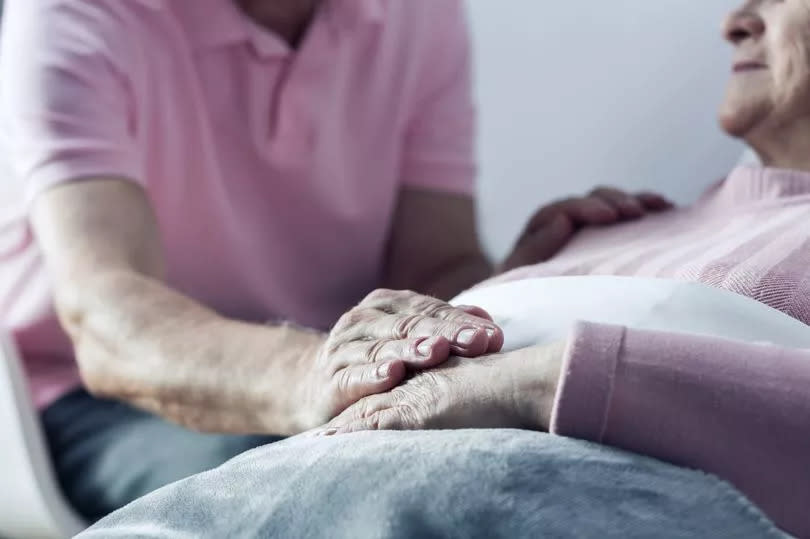The NHS sepsis symptoms that mean you 'must call 999' after MP loses limbs to condition

People have been urged to make sure they are aware of the warning signs of sepsis after an MP lost his limbs to the condition.
Sepsis is a life-threatening condition that occurs when the body's immune system "goes into overdrive" in response to an infection, as explained by the UK Sepsis Trust. It can lead to shock, multiple organ failure and sometimes death as infection-fighting processes turn on the body, particularly if it is not recognised and treated quickly; five people die with sepsis every hour in the UK.
Conservative MP Craig Mackinlay spoke this week of his ordeal with sepsis which left him with both of his hands and feet amputated, after being placed into a 16-day induced coma with just a 5% chance of survival. The South Thanet MP is due to return to Parliament for the first time on Wednesday, having been fitted with prosthetic legs and hands, since he was rushed into hospital in September.
Although sepsis is very serious, the symptoms of it can be hard to spot, according to the NHS. There are lots of possible symptoms, which can be similar to those of other conditions such as flu or a chest infection; however, the health service urges patients to "trust your instincts" and call 999 or go to A&E if you think you or someone you look after has warning signs of sepsis.
Sepsis symptoms in babies and young children
The NHS says you must take your baby or young child to A&E or call 999 if they have any of the following symptoms of sepsis, as listed on the NHS website:
Blue, grey, pale or blotchy skin, lips or tongue – on brown or black skin, this may be easier to see on the palms of the hands or soles of the feet
A rash that does not fade when you roll a glass over it, the same as meningitis
Difficulty breathing (you may notice grunting noises or their stomach sucking under their ribcage), breathlessness or breathing very fast
A weak, high-pitched cry that's not like their normal cry
Not responding like they normally do, or not interested in feeding or normal activities
Being sleepier than normal or difficult to wake
Babies under the age of one are more likely to get an infection that could lead to sepsis, particularly if they're born early (premature) or their mother had an infection while pregnant. They may not have all of these symptoms, but it's still vital to seek urgent medical help even if they only have one of the above warning signs.
Sepsis symptoms in adults
You should call 999 or go to A&E if an adult or older child has any of these symptoms of sepsis, as listed by the NHS:
Acting confused, slurred speech or not making sense
Blue, grey, pale or blotchy skin, lips or tongue – on brown or black skin, this may be easier to see on the palms of the hands or soles of the feet
A rash that does not fade when you roll a glass over it, the same as meningitis
Difficulty breathing, breathlessness or breathing very fast
Some people are more likely to get an infection that could lead to sepsis, including those aged over 75, people with diabetes or a weakened immune system, women who have just given birth, had a miscarriage or had an abortion, or people who have recently had surgery or a serious illness.
Early warning signs to look out for
In addition, the NHS urges patients to call 111 - who can issue advice, arrange a phone call from a nurse or doctor, or call an ambulance - if they or someone they look after:
Feels very unwell or like there's something seriously wrong
Has not had a pee all day (for adults and older children) or in the last 12 hours (for babies and young children)
Keeps vomiting and cannot keep any food or milk down (for babies and young children)
Has swelling or pain around a cut or wound
Has a very high or low temperature, feels hot or cold to the touch, or is shivering
The UK Sepsis Trust explains: "Sepsis is indiscriminate: while it primarily affects very young children and older adults, and is also more common in people with underlying health conditions, it can sometimes be triggered in those who are otherwise fit and healthy." That's why it's always advised that you get help immediately if you spot any of the warning signs, even if you're unsure whether it could be sepsis.

 Yahoo News
Yahoo News 
